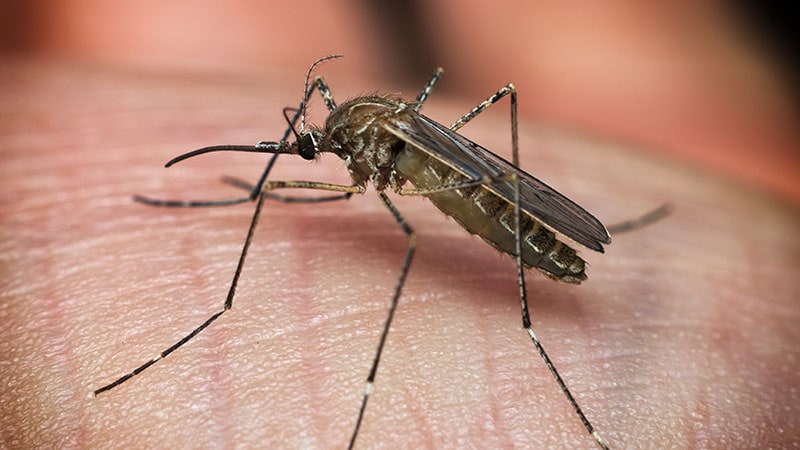Conceitos Básicos
West Nile virus cases are rising in the US, posing a significant health risk.
Resumo
Several signs indicate a surge in West Nile virus cases in the US, with no specific treatment available. The virus affects humans, birds, horses, and other mammals. The leading cause of mosquito-borne disease in the US, West Nile virus has already led to 126 human cases across 22 states. Severe flooding and high heat contribute to the rise in mosquito populations. Scientists track infected mosquito patterns using sentinel chickens. Precautions include limiting outdoor exposure, wearing protective clothing, using insect repellent, and maintaining swimming pools. Symptoms range from flu-like illness to severe neuroinvasive cases, with potential long-term consequences or death. Vaccine candidates are in development, but predicting outbreaks remains a challenge.
West Nile Infections Rising in the US
Estatísticas
As of August 8, 126 human cases of West Nile virus had been identified across 22 states.
By August 4, 181 out of 913 birds tested in California were positive for the virus.
89 neuroinvasive cases of West Nile virus have been reported nationally this year.
Citações
"Particularly here in California, it's peak risk right now." - Vicki Kramer, PhD
"We're bracing for higher-than-baseline human cases." - Daniel Pastula, MD
"It just shows you how dangerous mosquitoes can be." - Daniel Pastula, MD
Principais Insights Extraídos De
by Marcia Frell... às www.medscape.com 08-11-2023
https://www.medscape.com/viewarticle/995399
Perguntas Mais Profundas
How can communities better prepare for potential outbreaks of West Nile virus?
Communities can better prepare for potential outbreaks of West Nile virus by implementing comprehensive mosquito control measures. This includes regular surveillance of mosquito populations, especially in areas where infected mosquitoes have been detected. Additionally, communities can educate the public about the importance of personal protection measures such as wearing protective clothing, using insect repellent, and eliminating standing water where mosquitoes breed. Developing and implementing effective communication strategies to alert the public about the risk of West Nile virus and the necessary preventive actions is also crucial. Collaborating with local health departments, vector control agencies, and community organizations can help in coordinating efforts to reduce the risk of outbreaks.
What are the limitations of current preventive measures against mosquito-borne diseases?
While current preventive measures against mosquito-borne diseases like West Nile virus are effective to some extent, they have limitations. One major limitation is the reliance on individual compliance with preventive measures such as using insect repellent and wearing protective clothing. Not everyone may adhere to these recommendations consistently, leaving gaps in protection. Another limitation is the challenge of controlling mosquito populations, especially in urban areas with dense populations and limited resources for mosquito control programs. Additionally, the development of insecticide resistance in mosquitoes poses a threat to the effectiveness of chemical control methods. Climate change can also impact the distribution and behavior of mosquitoes, making it difficult to predict and prevent outbreaks effectively.
How can advancements in vaccine development improve the management of West Nile virus cases?
Advancements in vaccine development for West Nile virus can significantly improve the management of cases by providing a proactive approach to prevention. A safe and effective vaccine could offer long-term protection against the virus, reducing the risk of infection and severe illness in vulnerable populations. Vaccination programs targeting high-risk groups, such as the elderly or immunocompromised individuals, could help prevent neuroinvasive disease and its complications. Furthermore, a vaccine could potentially reduce the burden on healthcare systems during outbreaks by lowering the number of severe cases requiring hospitalization. Research into vaccine candidates and the eventual availability of a West Nile virus vaccine could revolutionize the way we approach and manage the disease in the future.
0
